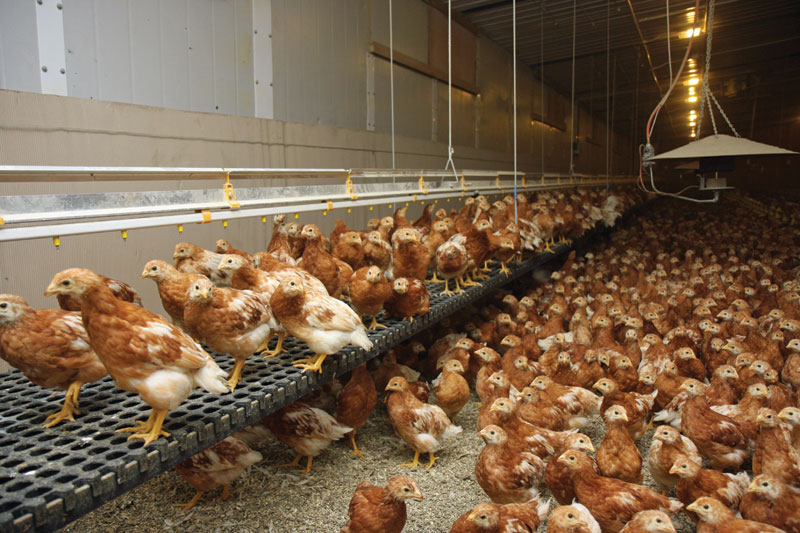
Some pullet rearers are considering changing current payment terms to limit losses from egg producers who fail to pay.
Free range egg producers currently pay for their birds between 14 and 28 days after delivery, but under changes now being considered by one pullet rearer who spoke to the Ranger they would in future have to pay half of the bill before the birds were delivered. Other rearers are understood to be considering similar changes.
The rearer we spoke to said that pullet rearers were getting "very nervous". In some cases they were spending a lot of money producing the pullets only to subsequently find that the producer who had ordered them did not have the money to pay the bill. A number of pullet rearers were looking at new systems of payment.
"We are looking at an arrangement under which the producer would pay 20 per cent six months before delivery," he said. "That would cover the hatchery cost if the producer cancelled at that point. Another 30 per cent would be paid at eight weeks, covering more of the costs. The balance would be paid according to the current terms at between 14 and 28 days."
Pullet rearers have been experiencing huge demand for pullets following recent producer price increases by major packing companies, but although the market overall is short of eggs there is still an oversupply of free range eggs, which are currently being cascaded down to cover shortages of cage eggs.
There have been warnings of another crisis in free range next year unless production is controlled. The fear of pullet rearers is that such a crisis could put producers out of business - leaving pullet rearers picking up the losses on pullets that have not been paid for.
"We are very concerned," said the pullet rearer. "We are worried that there could almost be a crash. We are going to have far too many free range eggs and next time we will not have the introduction of new EU regulations to get us out of the mess. In 18 months or so we could well see producers going bust. By introducing staged payments we would limit our exposure. That has to be the fair way to proceed."
He said it was a system used perfectly happily when farmers bought equipment and there was no reason why it could not be adopted for pullet purchases. With pullet costs rising and orders increasing in size pullet rearers needed some protection, he said.
The new terms could start coming into force at the beginning of 2013.
